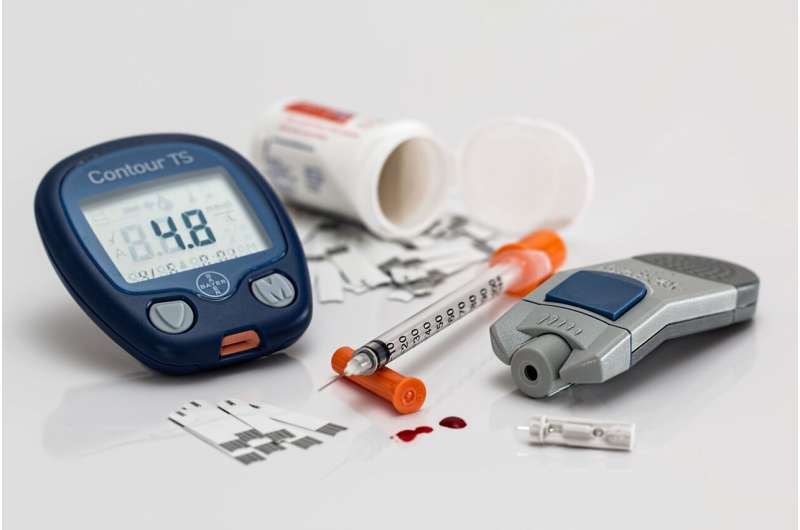This article has been reviewed according to Science X's editorial process and policies. Editors have highlighted the following attributes while ensuring the content's credibility:
fact-checked
peer-reviewed publication
trusted source
proofread
Better targeted prediabetes care needed, say researchers

A more targeted approach to the screening and treatment of prediabetes is likely to be more effective at preventing type 2 diabetes and to reduce strain on primary health care sector resources, according to researchers at the University of Otago, Wellington.
In an article in the Journal of Primary Health Care the researchers say New Zealand's "one-size-fits-all" approach to prediabetes does not reflect the variable rate at which different groups progress to type 2 diabetes.
Lead author Dr. Christine Barthow, from the University's Department of Medicine, says prediabetes affects 21% to 26% of adults and Māori and Pacific populations are disproportionately represented in this group.
"Despite the large number of people affected, the associated health risks from prediabetes are multifaceted, highly variable and not fully understood for New Zealand populations."
An estimated 5% of adults with prediabetes will go on to develop type 2 diabetes over a three-year period. Men, younger people and those with higher blood glucose and BMI levels are most at risk of their condition progressing. Those aged 35–44 years are three times more likely to develop type 2 diabetes than those aged over 65.
The New Zealand guidelines for prediabetes recommend health care providers offer lifestyle modification advice, consider prescribing metformin to reduce blood glucose levels and actively manage cardiovascular disease risk factors.
Dr. Barthow says while the detection of prediabetes provides an early opportunity to intervene to prevent or delay the onset of type 2 diabetes, the current guidelines and the funding models for primary care fail to take into account the higher risk faced by some population groups.
"Our current approach creates an unnecessary burden on the primary health care sector for too little gain. Māori and Pacific peoples are particularly poorly served and yet have high health needs in this area."
Dr. Barthow says health care providers can find it a challenge to identify which patients are most likely to progress to type 2 diabetes and are sometimes uncertain about when and how to intervene effectively.
She says adults are typically found to have prediabetes as part of cardiovascular risk assessment screening offered to older age groups, but this approach risks missing individuals at higher risk, including those in younger age groups, who are most likely to benefit from interventions.
The authors say the current guidelines need to be reviewed and updated to reflect the latest evidence about those most at risk of developing type 2 diabetes. They recommend focusing on the risks for younger people; targeting interventions to higher risk groups; and adding guidelines for prescribing metformin.
They also recommend developing New Zealand-specific risk assessment tools to determine who should be prioritized for prediabetes and diabetes screening and which groups would most benefit from more intensive diabetes prevention support to ensure limited health care resources are directed to those most in need.
A co-author, Professor Jeremy Krebs from the University's Department of Medicine and an endocrinologist at Te Whatu Ora—Capital, Coast and Hutt Valley, says some of the factors contributing to type 2 diabetes in high-risk groups, such as food insecurity, poverty, and unemployment, cannot be addressed through the health system and must be tackled at a governmental level.
"To really make a significant difference to the rates of type 2 diabetes there needs to be well resourced and sustained efforts at multiple levels. Primary care can't do this alone."
More information: Christine Barthow et al, It is time for a more targeted approach to prediabetes in primary care in Aotearoa New Zealand, Journal of Primary Health Care (2022). DOI: 10.1071/HC22089




















